With more than 5,000 kilometers of coastline, Spain can guarantee guests wonderful beach vacations. Currently, 621 beaches in Spain—or one out of every five beaches—have the blue flag.
Before granting a beach the blue flag designation, the Blue Flag considers several factors, including the location, water quality, life-saving services, public restrooms, signage, accessibility to parking and hotels, sustainable management, recycling bins, and available water sports.
Approximately five Spanish beaches consistently rank among the top 25 beaches in Europe, and they continue to be one of the most popular attractions in Spain. A wonderful beach hooks you, make you detest the thought of leaving when your vacation is done and makes you want to go back even before your suntan has worn off.
Cala de Algaiarens – Menorca
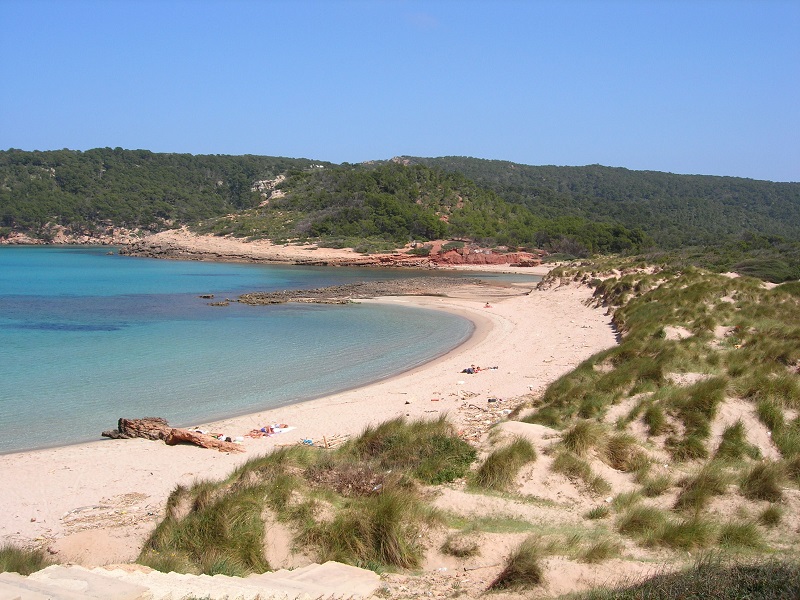
Swimming in one of the many coves (Calas) that this charming tiny Island has to offer is among the top reasons to visit Menorca. Many of them are only accessible by sea, and the yachts and other small ships that are anchored nearby give away their location.
The two big beaches that makeup Algaiarens are Platja des Bot and Platja es Tancats, the latter of which is the largest. The beaches on the north of the island that are most protected are likely both, which are situated within rocky bays.
Children can play safely in the shallow seas and smooth, fine-grained sand in Cala de Algaiarens. Driving about Menorca’s island is a terrific way to discover these hidden gems, and Cala de Algaiarens’ magnificent beach is a must-see.
Playa de Illetes – Formentera
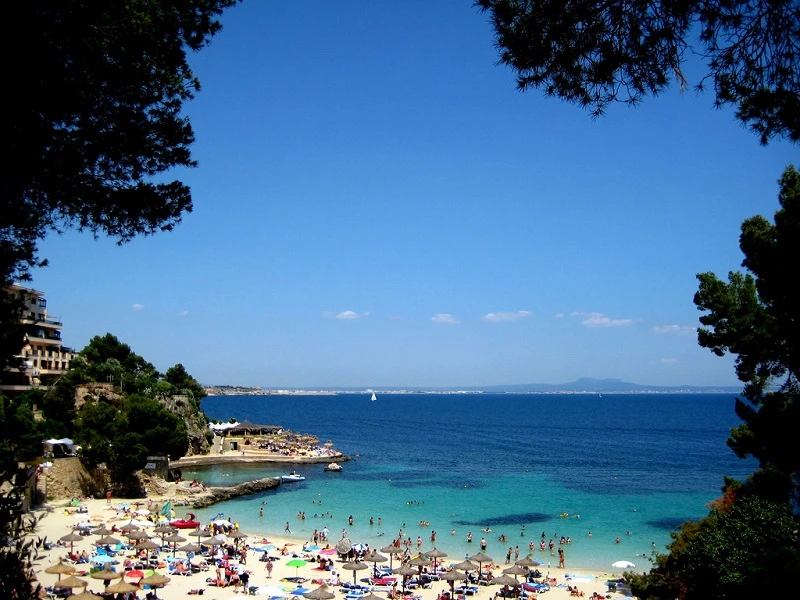
On the northernmost point of the Balearic Island of Formentera is the breathtaking beach community of Illetas. When you’re relaxing on the beach in Illetas, you might be excused for thinking that you’re on a far-off Caribbean island.
This beach receives a lot of traffic during the busiest periods of the year because it is likely the most frequented by both tourists and locals.
Although some portions of the area may only be reached by foot or bicycle due to the topography, the broader area is fairly accessible by any type of vehicle. There are dining options, shops, and sun lounger rentals.
El Cofete Beach – Pajara – Fuerteventura
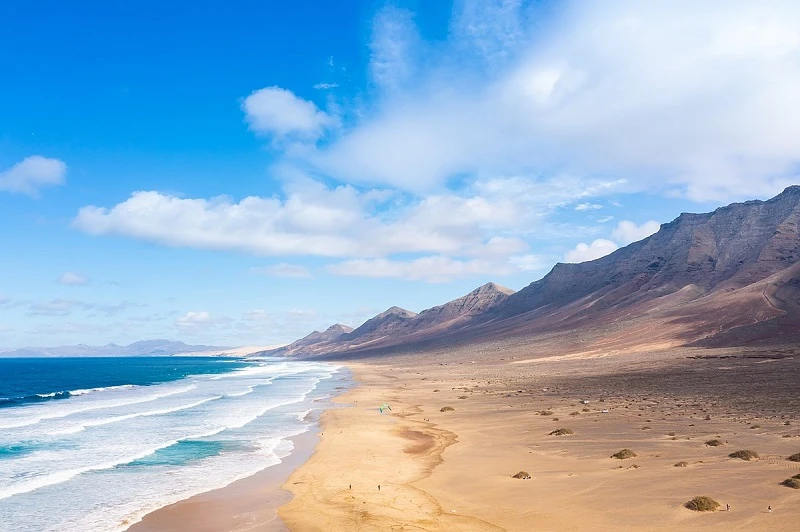
The Cofete beach is situated in the Pajare municipality’s Jandia Natural Park, which is south of Fuerteventura, a Canary Island. Cofete is the beach for you if you’re searching for a very quiet, off-the-beaten-path location. Because the magnificent Jandia Mountains surround it, the scenery is breathtaking.
Cofete is just breathtaking, with its golden, fine sands and clear waters. However, it can be windy, making it a great place to windsurf.
Naturism is permitted at this beach because of its extremely private position, and since it is not widely accessible, you are guaranteed to see very few other people there. Since there are no facilities in Cofete and there are huge waves there, extreme caution should be exercised when bathing.
Playas de Denia – Alicante
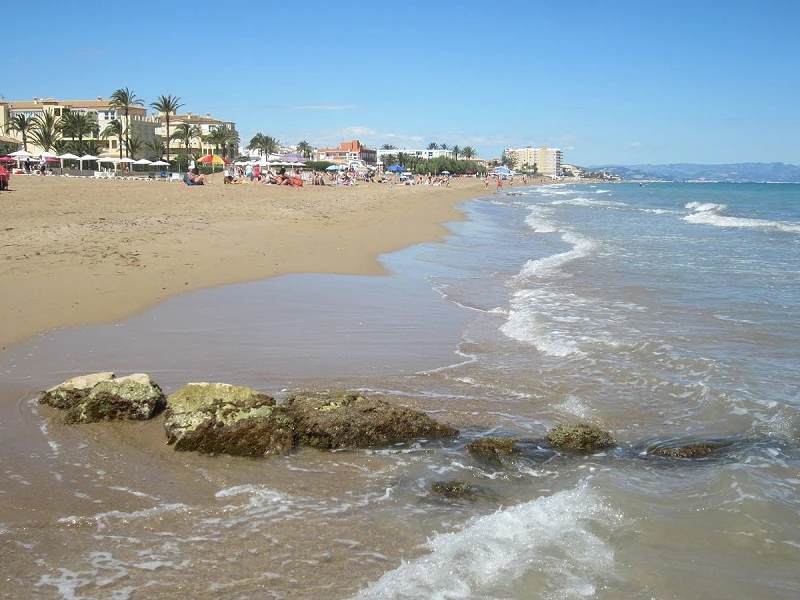
The nicest beaches may be found along the coasts of Alicante and Denia; these are Les Marines, Les Deveses, and Les Rotes. Les Marines has fine sand and is roughly 2 kilometers long. Les Rotes, which lies south of Denia, is renowned for its stunning landscape.
With a length of around 4 kilometers, Les Deveses is the longest beach in the region. It boasts fine, golden sand and a surge that is often quiet. Because it tends to become windy at times, it is a solid favorite among windsurfing enthusiasts.
Playon de Bayas – El Sablon Beach Asturias
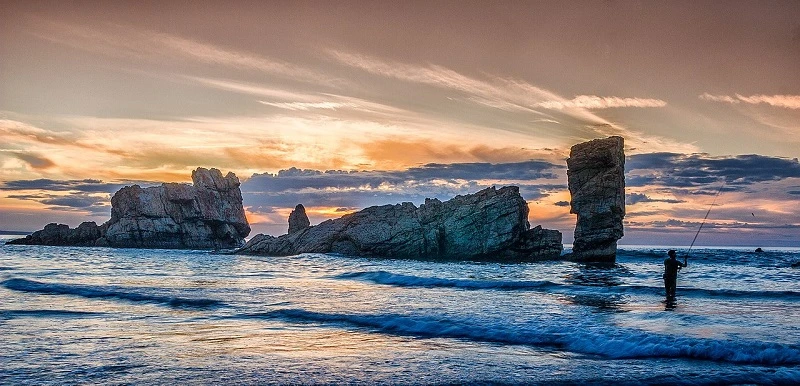
One of the nicest beaches in the Asturian province is Playa de Bayas, often known as El Sablon beach. Playa de Bayas is a stunning beach that is completely encircled by a natural forest. This location is also of significant ecological interest because it is home to several plant species.
Together with Los Quebrantos beach, the dark and golden sand creates a nearly 3-kilometer stretch of immaculate beach. Showers, lifeguards, surfing, and parking are available; access is simple by foot or by automobile.
Calita de Banyalbufar – Mallorca
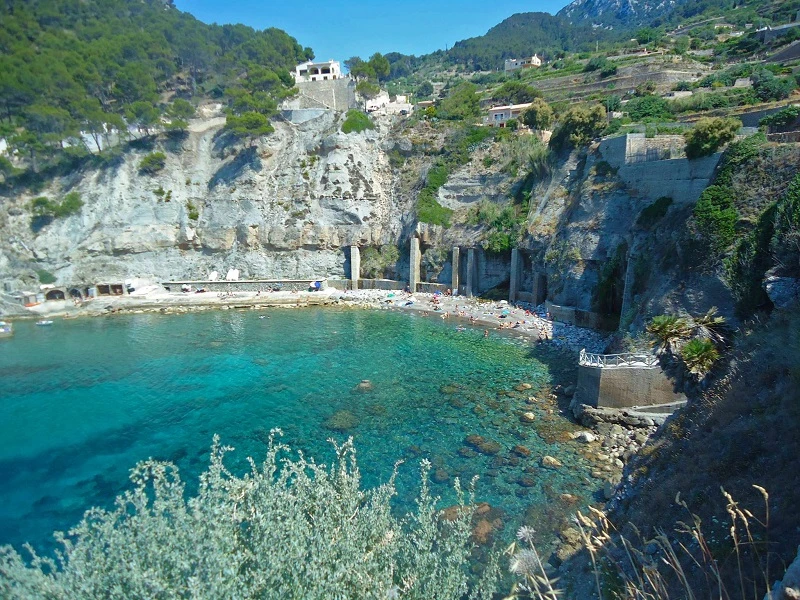
On Mallorca’s west coast, next to the Serra de Tramuntana mountain range is the little settlement of Banyalbufar.
A little bay with a long, narrow beach with cliffs and woods surrounding the beach. Large stones make up some of it, while gravel makes up the rest. On a towel, it is possible to lie down, and the view from the beach is breathtaking.
Some people may not think of this beach as being ideal, but once you are sitting on its gentle slopes and surrounded by magnificent crystal blue waters and gorgeous landscape, you will see why this special location is on our list of the greatest beaches in Spain.
The beach is close by and parking is free. Unfortunately, it is not suitable for children and is better appropriate for adults. Snorkeling and diving are both excellent in the bay. Neither restaurants nor beach bars exist.
Cala n Porter Menorca
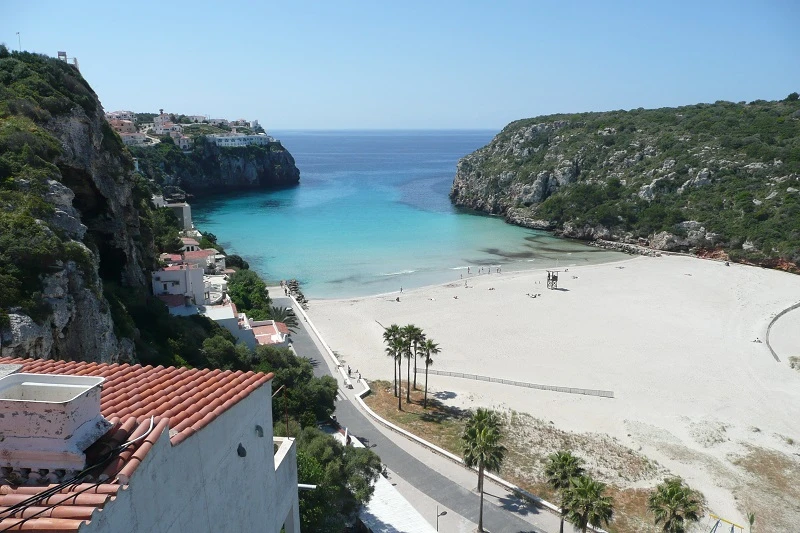
One of the best beaches in the region is Cala n Porter, which is found in the south of the island of Menorca. Cala n Porter has excellent sand and crystal-clear waters and is located in a protected harbor, like many coves on the Balearic Islands.
There are plenty of bars and restaurants close to the beach where you can enjoy a wonderful dinner in between sunbathing and beach sports. The sea is great for snorkeling and safe swimming.
San Vicente de la Barquera
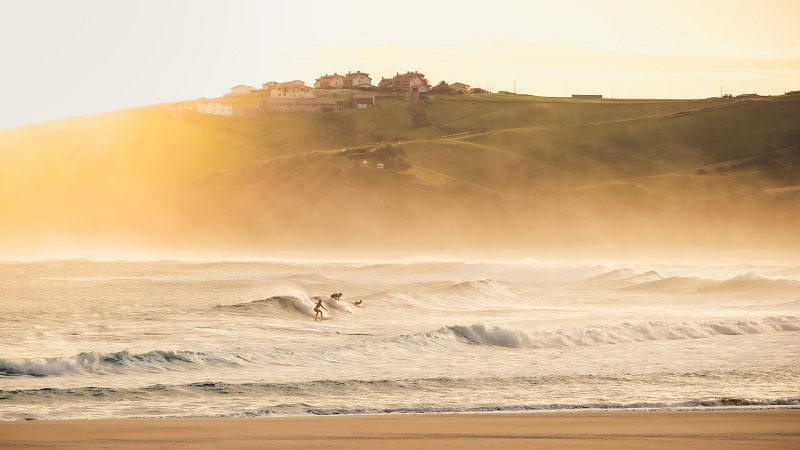
Playa de Meron and Playa Rosal, Playa de Somo, Playa de Puntal, Playas de Llangre, Playa de Sonabia, Playa de Berria, and Playa de Valdearenas are just a few of the stunning beaches that San Vicente de la Barquera in northern Spain has to offer.
The Playa de Merón, a semi-urban beach with excellent white sand, is located close to San Vicente. Just before San Vicente’s entrance is Playa de la Maza, a little beach with excellent golden sand and quiet waters. Another little-known, peaceful beach with beautiful beaches is Playa de la Fuente.
Playa de Mazagon – Huelva
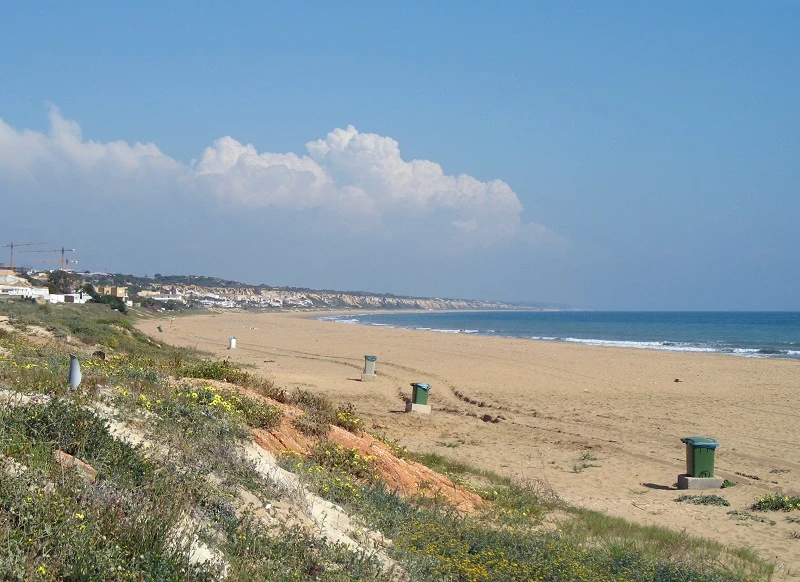
On the stunning southern coast of Andaluca, close to Huelva, the Playas de Mazagon is a firm favorite among beach enthusiasts. Near Mazagon, there are three important beaches: Playa de Mazagon, Playa de Las Dunes, and Playa de Alcor.
The Playa de Mazagon is the busiest and closest to the port; the Playa de la Dunes is further west and typically quieter; and the later Playa de Alcor is even farther west and farther from the center of Mazagon. a spotless beach surrounded by pine trees and dunes.
The Costa de la Luz in southern Spain is proud of the magnificent Mazagon beaches, which stretch for around 36 kilometers over pristine golden sand.
Cala Macarelle & Cala Macarelleta Menorca
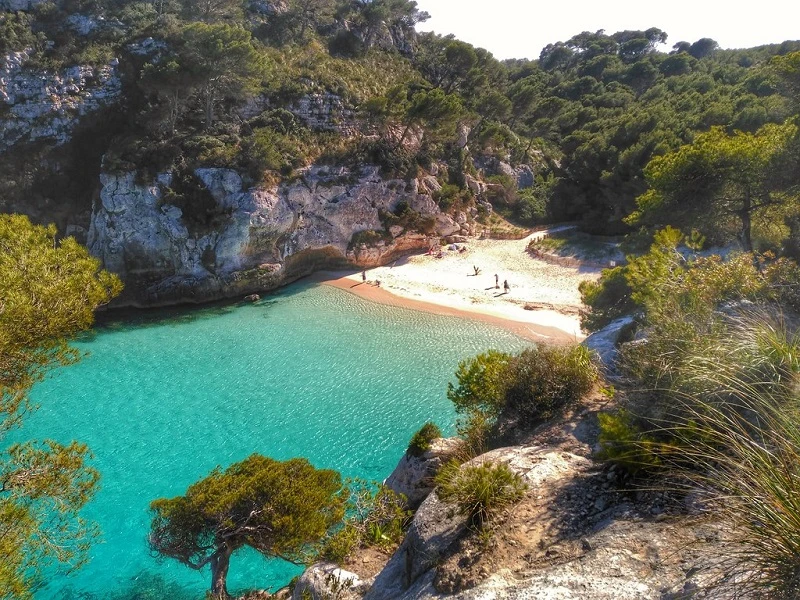
Two of Menorca’s southernmost, most gorgeous, and frequently photographed beaches are Cala Macarella and Cala Macarelleta. Both of these Calas are quite lovely because they are surrounded by towering cliffs, a pine forest, and seas that are a clear blue color.
They are among the most visited beaches, especially in the hot, sunny months of July and August, despite being off the main path and difficult to get.
Chipiona – Cadiz
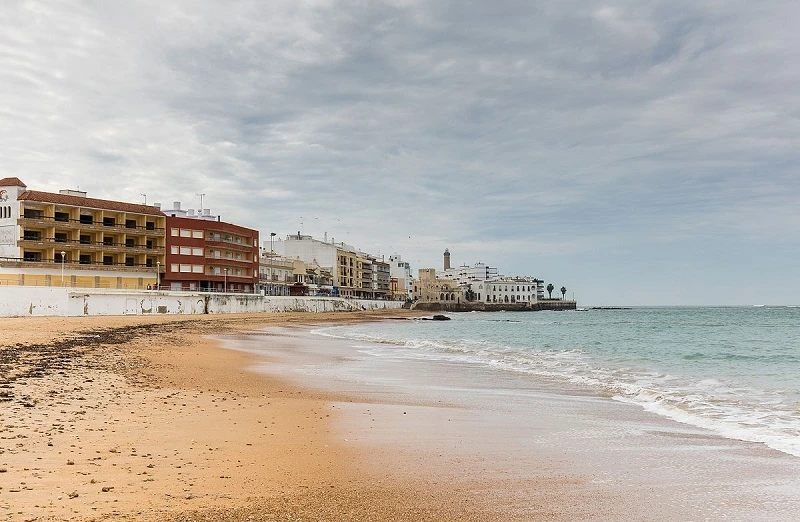
The beaches at Chipiona on the Costa de la Luz are all proud owners of the Blue Flag and have long been Sevillans’ most sought-after summer vacation spot. The Playa Cruz del Mar, Playa Las Canteras, and Playa La Regla are a few of the beaches. Spanish culture is prevalent in the area of the town and its beaches.
Enjoy the fresh seafood on offer, notably the delicate flavor of the renowned Gambas Blancas found nearby in the warm, clear waters off the coast of Cadiz. Sardines are roasted over open fires built by beach bars and restaurants.
Islas Cies – Pontevedra
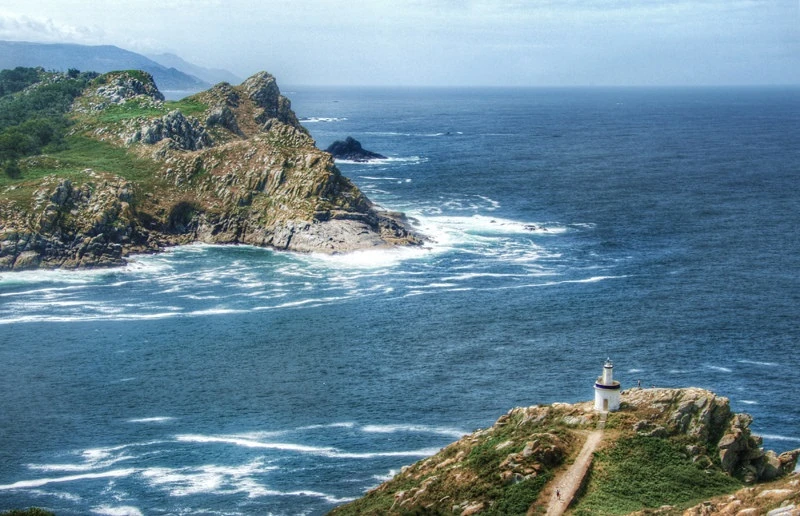
The beaches at Las Islas Cies can only be described as breathtaking. Three islands off the coast of Pontevedra, Galicia, that form an archipelago, were designated a natural park in 1980.
The Cies archipelago is made up of three islands: San Martino, also known as “Saint Martin,” is the southernmost island, while Monteagudo, also known as “Sharp Mount,” is to the north. Do Faro is also known as the “Lighthouse Island” or “Isla do Medio.”
Playa de Rodas, Playa de Figueiras or of los Alemanes, Playa de San Martino, Playas de Cantareira, Margaridas, Playas de Mixueiro, Areina Playas de los Bolos and Nuestra Senora, Nuestra Senora, and Carracido are some of the most popular beaches.
Every departing tourist has the desire to return another day thanks to the area’s stunning natural surroundings, spotless sands, and clear waterways.
Cala Agulla Mallorca
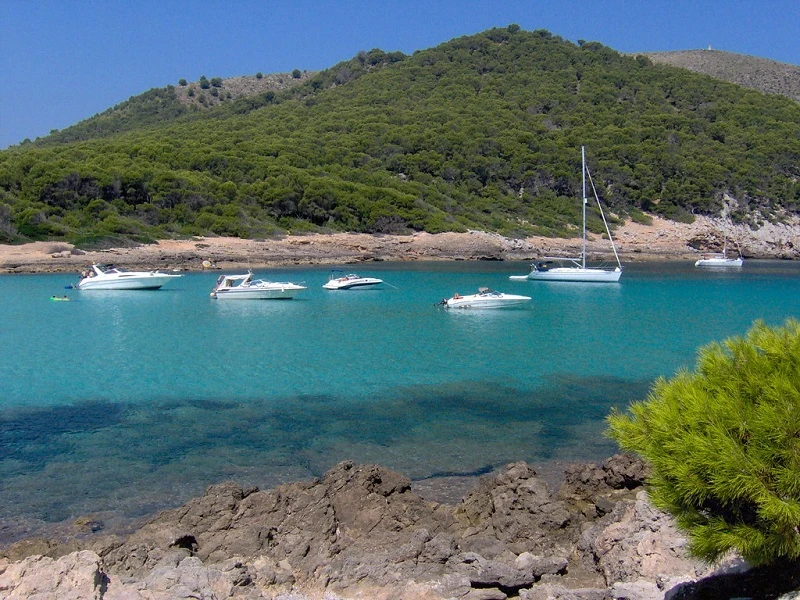
On the eastern side of the Balearic Island of Mallorca, Cala Angulla is one of Spain’s top beaches. Cala Angulla, which was designated as a region of significant natural significance in 1991, is a lovely blue flag beach that is situated in a picturesque setting with the Llevant Natural Park serving as its backdrop.
This beach is ideal for swimming for the entire family due to its gentle white sands and clear, tranquil seas. A few water sports shops and a good number of neighborhood beach bars are available.
Playa de Langosteira – La Coruna
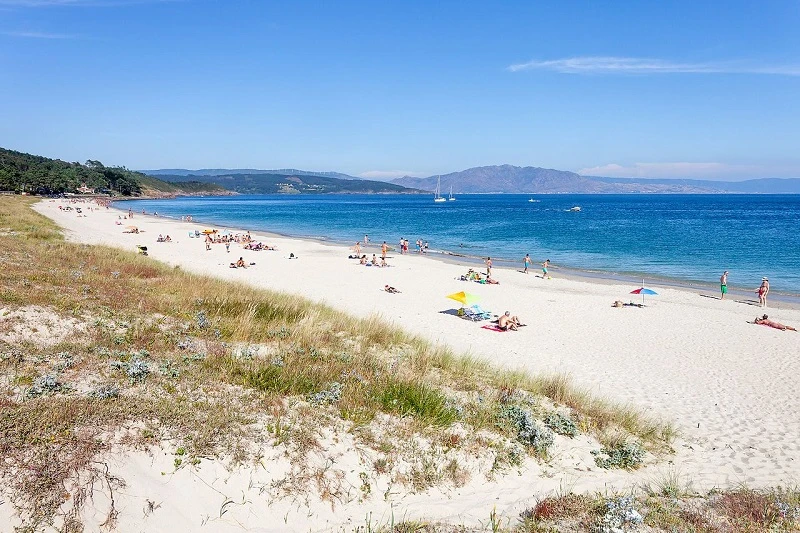
Galicia’s Playa de Langosteira beach, with a spectacular three-kilometer stretch of sand, is located at the entrance to Cape Fisterra. The sea is calm and beautifully clear. The “Cruz de Baixer,” an old cruise ship that has run aground near the northern end of the beach, is an oddity.
Disabled access, pubs, and restaurants are amenities. The region is known for the wide variety of seafood that is always available at several restaurants close to the beach.
Playas de Barbate – Cadiz
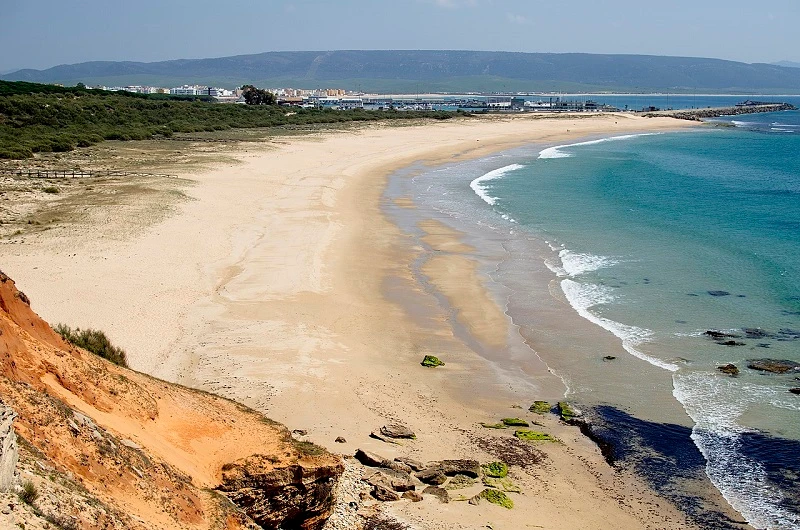
Some of Spain’s most beautiful beaches may be found in Barbate, which is on the Costa de la Luz, which runs down the southernmost tip of the country. Mangueta Beach, Hierbabuena, Zahora Ntra. Sra. del Carmen, Canillos, Los Canos de Meca, Pajares, and the well-known Zahara de los Atunes are just a few of the beaches near Barbate.
Most have extensive stretches of fine, white sand that are sometimes windy but lovely. These top-notch beaches are serene, and well-kept, and offer a welcome respite from the hectic Costas. The next time you visit this region of the Costa de la Luz, heed our advice and make sure to include them all on your list.
Beach de Levante – Benidorm
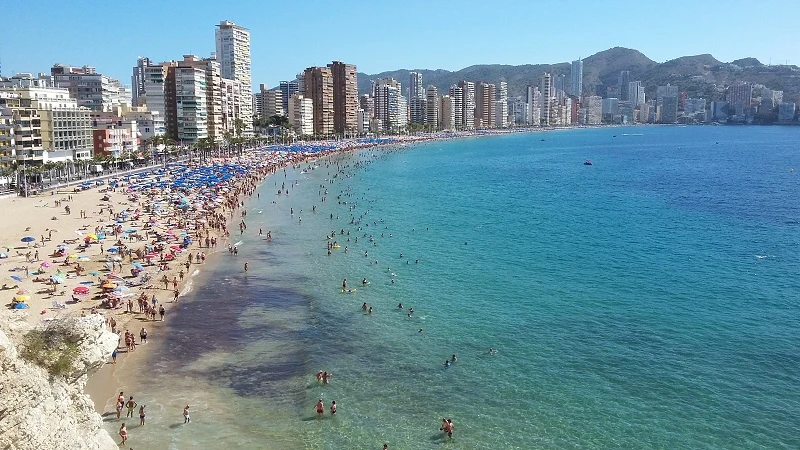
The Platja de Llevant has a position in any Spanish beach guide, but it may not be for you if you prefer peaceful, remote beaches.
This beach is found in Benidorm, the most well-liked vacation spot in Spain. Its six kilometers of spotless golden beaches perfectly capture everything that makes a family-friendly beach in Spain great.
There are tens of thousands of sunbeds available for rent, several restaurants, beach sports, unique activities, security and first aid stations, kid-friendly activities, and much more.
Las Terasitas
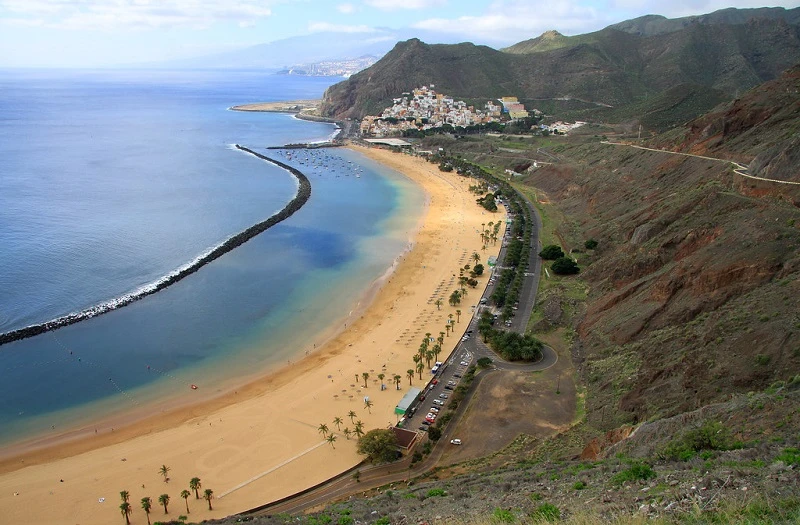
The beach at Las Terasitas lies on Tenerife’s northeastern coast, about 15 minutes drive north of Santa Cruz de Tenerife. It was imported from the Sahara and used to cover up the island’s black volcanic sand. The sand is silky and pale gold.
There is a barrier a few meters offshore, which makes it ideal for bathing because the seas are calm and shallow close to the beach, making it a great family beach, especially for the kids.
Conclusion
Spain’s best beaches provide something for everyone who enjoys the sun, from the rocky coves of the northern coast to the white-sand bags on azure-shaded islands.
On the 4900km of coastline in the nation, there is a length of sand that is ideal for you, whether you’re searching for dance-until-dawn parties, coastal family fun, or to get away from the throng.
